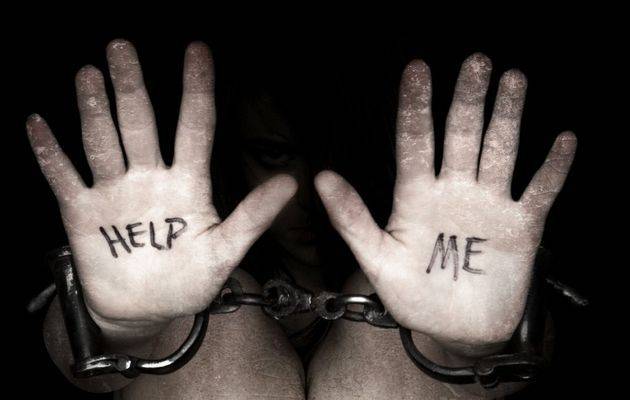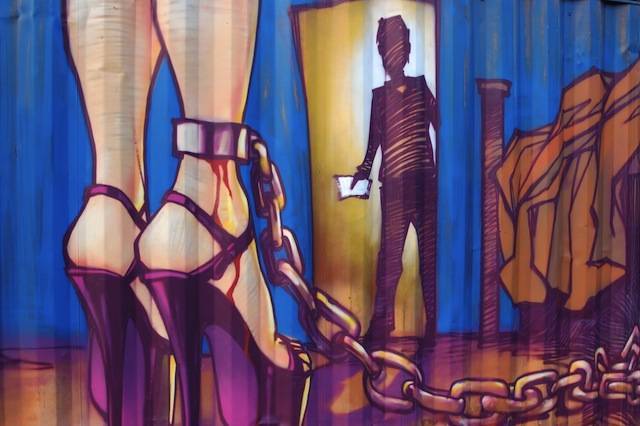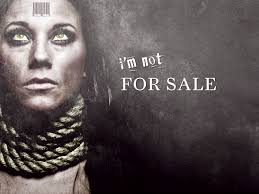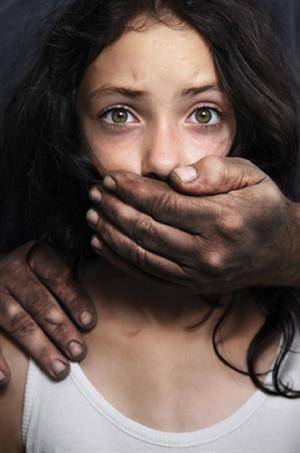Do a quick Google Image search for “sex trafficking,” and many of the images you’ll find are of young women and girls, locked or tied up or restrained by a faceless assailant. For example:




While this characterization may indeed reflect the physical harm inflicted on some trafficking victims, it fails to portray the coercion, threats, psychological manipulation, and lack of resources that much more commonly trap victims of sex trafficking.
Furthermore, this imagery sets up a vastly oversimplified narrative in which victims are powerless and, implicitly, only made powerful when a savior like us rescues them. This “rescue and save” rhetoric, while well-intentioned, can erase survivors’ innate resiliency, agency, and right to self-determination. This Human Trafficking Awareness Month, as an advocate I am calling on each of us to ensure our words and actions honor victims’ agency and autonomy. In this blog post, I am going to offer three suggestions for doing so.
First, we must view and talk about sex trafficking victims with respect for their personhood, and discuss their experiences with respect for their difficulty and complexity. It is entirely possible — common, even, as many advocates for sex trafficking victims might tell you — that a victim of sex trafficking may not respond with enthusiastic acceptance to being “rescued.” Why not? Fear of severe harm, traumatically-coerced bonding, financial instability, uncertainty about other options, stigma, and more — all reasons similar to the perennial question domestic violence victim advocates hear: “why doesn’t she just leave?” Questions like these — “why do they stay?”, “why don’t they want to be rescued?” — often come from a place of genuine concern, but also misunderstanding. But the real impact of portraying sex trafficking victims with the “rescue and save” imagery presented above is that those victims are then seen as weak, helpless things, and not as people. This HTAM, let’s ensure we keep victims’ personhood, not our own savior complexes, at the center of our discussion.
Secondly, this HTAM, as we discuss sex trafficking, I want to encourage more nuanced thinking on the topic of sex trafficking and commercial sex itself. Many forms of commercial sexual activity exist, and they all take place on a spectrum of choice, circumstance, and coercion (this excellent article unpacks the distinction further). Trafficking is an overt example of exploitation, but there is a great deal of academic debate on what other circumstances constitute or facilitate victimization of a person — circumstances that could include personal factors such as family trauma and substance abuse, structural conditions such as poverty and criminal justice policies that take away rights and resources from people convicted of crimes, and broad socioeconomic forces like misogyny and capitalism. Likewise there is wide debate as to whether some or all forms of commercial sexual activity should be legally regulated or considered legitimate work at all. Regardless of where you fall on this ideological spectrum, a reality we must hold central is that not all people engaged in exchanging sex acts for money or goods view themselves as victims. And we must also be sensitive to the fact that sex trafficking and different kinds of commercial sexual activity present varying levels of risk to the person engaged in them, and have differing public health implications. Moving away from black-and-white thinking about this topic, like moving away from inaccurate tropes about victims, ensures that we respect the dignity and humanity of victims and survivors we encounter.
Finally, my third suggestion for centering survivor agency and autonomy is for all of us to learn more about the principles of harm reduction and sex positivity, and weave them into our conversations about sex trafficking and sex work. Harm reduction is a public health approach aimed at mitigating or preventing the potential negative consequences of certain behaviors (very commonly applied to supporting people involved in sex work and/or intravenous drug use). Harm reduction does not mean we agree with or endorse a choice or behavior that a sex trafficking victim or a sex worker makes, but it does mean that we vocally respect their bodily autonomy, ensure they have a plan and resources to stay safe no matter where they are, and that we actively work to change the conditions that create risk in the first place. Sex positivity is a framework, developed by feminist thinkers, that responds to the historical conceptualization of sex as something taboo or dirty, and alternatively encourages us to view human sexuality as natural and sex (provided it’s explicitly consensual) as positive, and accept others’ sexualities, genders, and sexual/romantic preferences without judgment. When we apply the frameworks of harm reduction and sex positivity together in our work with survivors, we indicate the utmost respect for their personhood, center their decision-making ability, and ensure they have a space for developing a healthy relationship to their own body and self.
The Center for Women and Families strives to amplify the needs and voices of survivors, and to respond to their trauma with services that ensure they can determine their own present and future. We don’t ignore victims’ vulnerability, and we acknowledge that the circumstances of sex trafficking and sex work severely limit both available choices and victims’ decision-making ability itself — but we also know that empowering survivors and workers starts with how we talk about them. The stories we tell and believe about people affected by sex trafficking, and about those engaged in commercial sexual activity, influence and uphold the policies and practices we engage to promote their safety and health. This Human Trafficking Awareness Month, let’s tell a more accurate and kind story.
For further help and information: Contact The Center for Women and Families’ crisis line at 502-581-7222 (812-944-6743 in Indiana, or 1-844-237-2331 toll-free) for help if you are a victim of sex trafficking, or to get more information about supporting survivors of sex trafficking.
Additionally, learn more about the distinctions between sex trafficking and sex work by visiting these websites:
- Publications and further information about safety for sex workers: http://sexworkersproject.org/publications/archives/reports/
- Safety and self-care resources from Sex Workers’ Outreach Project: http://www.new.swopusa.org/resources-usa/ally-resources/







